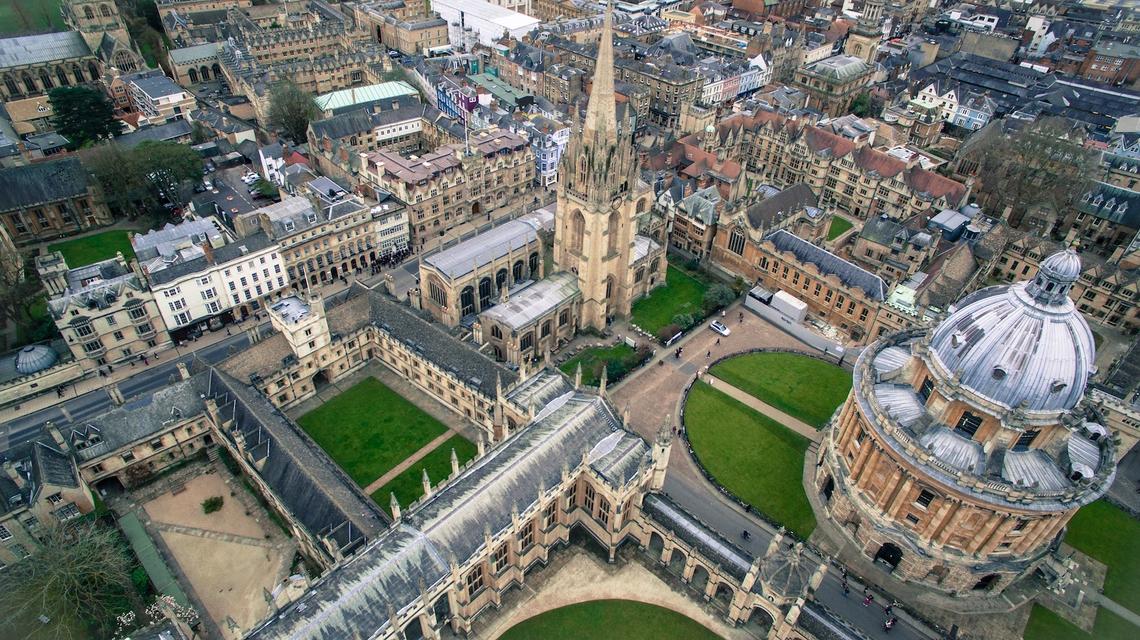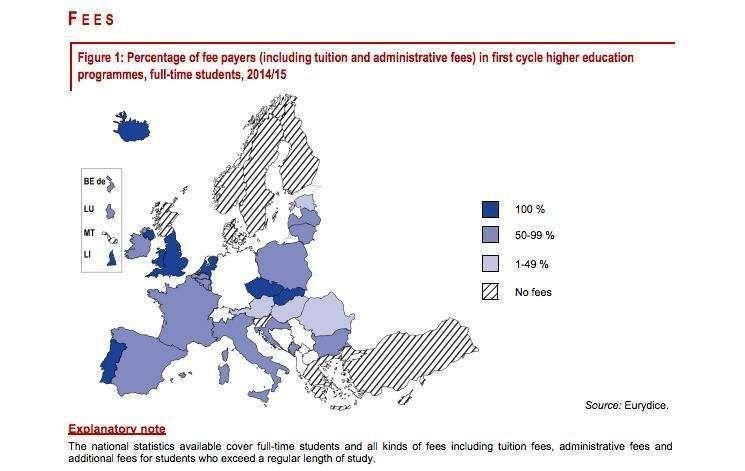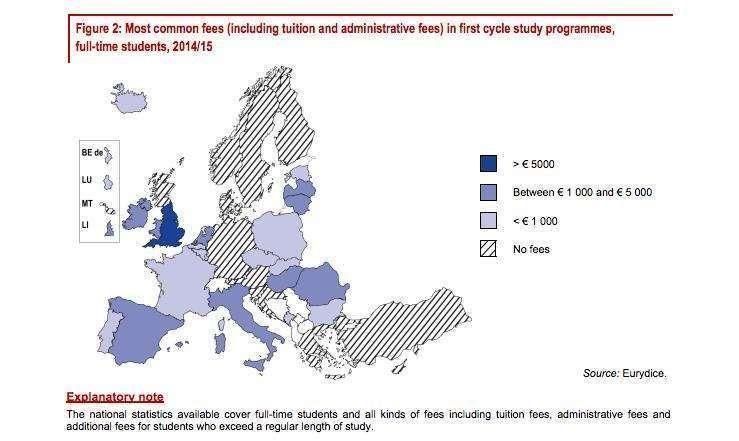
Apply to a foreign university with confidence
- Properly fulfilled documents
- Perfect motivation letter
- Support from a personal mentor
- Offers from several universities
Article score: 4.5 out of 5 (4 reviews)
Unlock the door to a world of opportunity with a European education — world-class universities, cultural diversity, and budget-friendly options await.
Free consultation




Education in Europe is a combination of high academic standards, centuries-old traditions and consistent quality. European universities laid the foundations of higher education, which were later adopted by the universities of the New World. It is worth noting that education in Europe does not always cost a lot of money: there are many programs and fields of study that are quite affordable for applicants with an average income. Today in individual universities in Great Britain, Switzerland, France and Germany, the share of foreign students is 10-15 per cent, and the number of students from other countries is steadily increasing.
| Country | Bachelor's degree | Master's Degree | Accommodation |
|---|---|---|---|
| Austria | 788-8,295 USD | 788-8,295 USD | 4,666-8,295 USD |
| Great Britain | 11,405-11,923 USD | 11,405-11,923 USD | 5,184-12,442 USD |
| Germany | 622-6,221 USD | 1,037-6,221 USD | 3,629-6,221 USD |
| Spain | 741-5,702 USD | 1,099-6,221 USD | 4,147-7,258 USD |
| Italy | 197-6,221 USD | 197-7,776 USD | 4,666-8,295 USD |
| Poland | 41-3,110 USD | 41-4,147 USD | 3,629-7,258 USD |
| France | 622-7,258 USD | 1,037-7,258 USD | 5,184-8,295 USD |
| The Czech Republic | 21-1,555 USD | 21-2,592 USD | 3,629-6,221 USD |
| Switzerland | 1,037-25,920 USD | 1,037-31,104 USD | 6,221-14,515 USD |
| Designation | Min EUR | Max EUR |
|---|---|---|
| Meals (per month) | 200 | 500 |
| Study materials (per semester) | 40 | 200 |
| Cellular, Internet (per month) | 20 | 40 |
| Personal expenses (per month) | 200 | 1000 |
| Round-trip plane tickets | 150 | 750 |
| Consular fee for visa processing (one-time) | 35 | 35 |
| Medical insurance (per year) | 250 | 600 |
| Transport (per month) | 50 | 150 |
The cost of studying in Europe varies greatly from country to country. In the Czech Republic, Germany, Austria, France and Finland education in most public universities (in the local language) is free, including for foreigners. You only need to pay registration fees (administrative costs), which range from 20 to 1000 euros.
The highest cost of education is in the universities of Great Britain and private universities of Switzerland. Sometimes the rates for a year of study here can reach 60 thousand euros.
The average can be called the cost of education in Italy, Latvia, Lithuania, Hungary and the Netherlands. It should also be taken into account that the cost of education in public higher education institutions in Europe is an order of magnitude lower than in private universities.
Below is also the approximate cost of studying and living in some European countries in euros per year:
In the case of renting an apartment, it is necessary to pay a deposit for accommodation in the amount of 200-2000 euros before arrival, which will be returned at the end of the rental. Many options for rented apartments are provided unfurnished, so there may be additional costs for housing arrangements (500-1000 euros). Often the rent does not include electricity and heating fees (20-80 euros per month).


Data source: europa.eu
European universities provide fundamental education: it is both theoretical knowledge and practical skills. That is why graduates of European universities are highly valued in the labour market. Diplomas from European universities are in demand all over the world.
In addition, European educational institutions provide knowledge that contributes to the development of the individual, and the expansion of horizons and worldviews. After graduating from a European university, a former student does not stop learning: the craving for knowledge, for new, is instilled in life.
University campuses in Europe are usually located in the most beautiful old cities with a rich history and magnificent architecture.
Graduates of European universities are fluent in one or two foreign languages.
Education at public universities in several European countries — in Austria, Germany, Greece, Spain, Italy, Norway, Poland, Finland, France, and the Czech Republic is free. Foreign students need to pay a fee of 20 to 1000 euros.
While studying in Europe, a foreign student can work (in most countries), get a diploma, and in some cases, find a job after graduation and apply for a residence permit. Either way, it's a unique cultural experience.
Students have the opportunity to travel to neighbouring countries — usually, a student visa allows this.

Many foreign applicants entering a European university first take preparatory courses. Here they give basic knowledge and learn the language. Here are some reasons why it is preferable to take a preparatory course before entering university.
Education in Europe requires preparation in advance. This concerns learning the language and preparing a package of documents. If a strong, prestigious university is chosen, additional subject exams and tests will be required. But this is a rarity: for admission to most bachelor's programs in European countries, a completed secondary education is enough. Additional entrance examinations are not carried out.

Many European countries provide foreign students with an opportunity to earn money. But you need to understand that full-time work and full-time studies at the university are two incompatible things. Foreign students can work for a limited amount of time. For example, in Austria, and Germany, while studying at a university in a bachelor's program, students can work up to 10 hours a week. In some federal states of Germany, foreign students are only allowed to work during student holidays.
In France, the Czech Republic, Italy, Spain, and Great Britain foreign students can work up to 20 hours a week. Often students are employed in junior positions. Of course, with little employment, you can earn small amounts: about 250-400 euros, but these funds may well cover personal expenses and food expenses. Sometimes foreign students are allowed to earn in their speciality: students undergo an internship or practice included in the course of study.

In some countries, all resident students, as well as most international students, receive grants and scholarships that cover most of their tuition. These countries include Cyprus, Denmark, Malta, and Finland. Also, most of the students from Luxembourg, the Netherlands, Sweden, and Norway receive financial assistance. Iceland is the only country that does not offer any government grant system for both residents and international students. In most European countries, foreign students pay for their studies themselves, receiving small grant support.
One of the most popular programs — Erasmus Mundus provides an opportunity for exchange between universities in Europe and other countries. The grants cover part or all of the costs of tuition, travel, and accommodation. Not only bachelors and masters, but also teachers can take part in Erasmus Mundus. Detailed information about the program is available on the website of the European Union Erasmus Mundus.
Each European country provides its grants and implements scholarship programs available to students. Many of them can be found on a special resource scholarshipportal.eu. Here are three popular European scholarships.
The German Academic Exchange Service provides DAAD Scholarships in a variety of areas and at different levels of education. Usually, the DAAD Foundation is approached by bachelor graduates who want to complete a master's program in Germany. The scholarship allows you to cover the cost of living and studying. Knowledge of German is required. Detailed information is available at daad.de.
Rhodes Scholarship is provided for study at the University of Oxford. The scholarship is for two years of undergraduate or postgraduate studies. The scholarship fully covers tuition and a part of living expenses. Additional information is available at rhodeshouse.ox.ac.uk.
The package of required documents for obtaining a student visa varies from country to country. The main package of documents includes the following:
Sometimes consulates may require a portfolio with letters of recommendation or motivation, certificates of completion of certain courses and other data characterizing the applicant. A certificate of conduct and medical certificates may be required, or a free-form letter stating the applicant's reasons for wanting to study in that country.
If a student goes to a foreign university on an exchange program, a copy of the agreement between the universities is required. To obtain a student visa to European countries, an interview at a consulate or embassy may be required. To obtain a student visa to the UK, you will need to appear in person at the embassy or consulate for the procedure of taking a digital photo and scanning fingerprints.
All documents must be translated into the language of the country, and the translation must be done by a professional agency and legalized.
60+ countries
we work with
$1,000,000 saved
by students through scholarships
6,400 offers
our students got